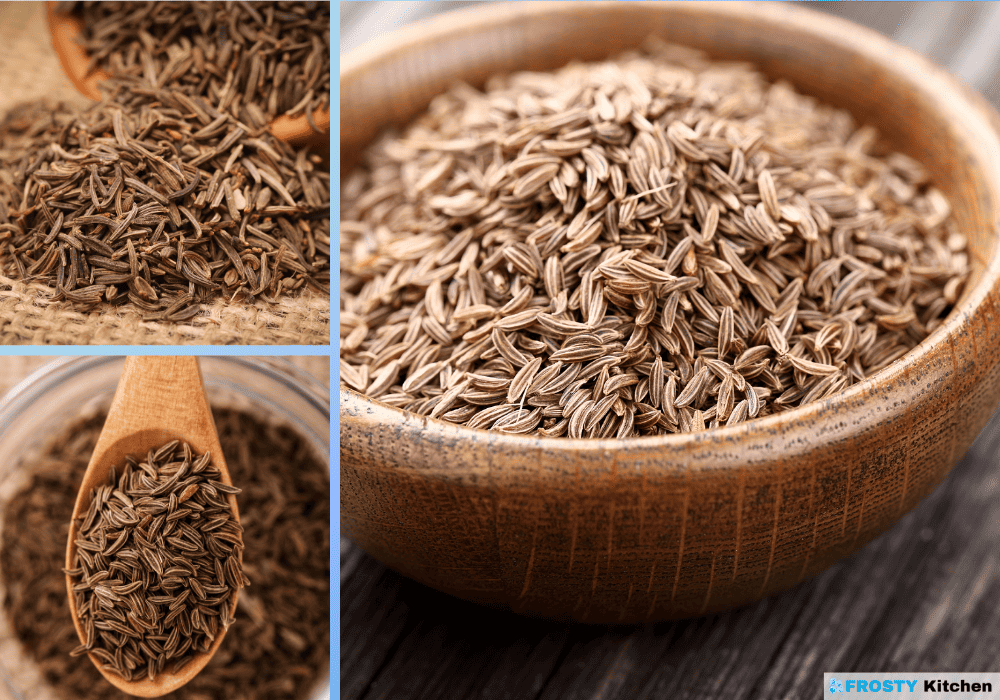Caraway seeds, a staple in many traditional cuisines, are known for their distinctive anise-like flavor and aroma. Originating from the Carum carvi plant, caraway seeds have been utilized in culinary and medicinal applications for centuries. Freezing caraway seeds can be an effective way to preserve their flavor and extend their shelf life. This article explores the origins, benefits, and a step-by-step guide on how to freeze caraway seeds efficiently.
What is Caraway Seeds?
Caraway seeds are the dried fruit of the Carum carvi plant, boasting a pungent, anise-like flavor and aroma that’s cherished in various global cuisines.
Origin and History
- Caraway seeds have a rich history dating back to ancient times, with evidence of their use in Mesopotamia and ancient Egypt. They found their way to Europe through trade and migration, becoming a staple in many traditional dishes.
- Their distinctive flavor and purported health benefits have made them a cherished item in kitchens and apothecaries across continents.
Nutritional Value
- Caraway seeds are a good source of dietary fiber, antioxidants, and several essential minerals like iron, magnesium, and calcium.
- They also contain carvone, a compound known for its antimicrobial properties, and other beneficial compounds that contribute to caraway’s health benefits.

Benefits of Freezing Caraway Seeds
Freezing caraway seeds offers several advantages:
- Preservation of Flavor and Aroma: Freezing helps to retain the distinctive flavor and aroma of caraway seeds.
- Extended Shelf Life: Freezing extends the shelf life of caraway seeds, ensuring a steady supply for your culinary endeavors.
- Maintaining Freshness: Properly frozen caraway seeds remain fresh and ready for use in a variety of recipes.
Preparing Caraway Seeds for Freezing
- Packaging: Utilize airtight, freezer-safe containers or vacuum-sealed bags to keep caraway seeds protected from moisture and freezer burn.
- Portioning: Divide caraway seeds into usable portions for easy retrieval.
Step-by-Step Guide to Freezing Caraway Seeds
Preserving the flavor and aroma of caraway seeds by freezing entails a few crucial steps. The methods described below aim to maintain the quality and freshness of caraway seeds for an extended period.
Method 1: Freezing in Airtight Containers
- Preparation: Ensure caraway seeds are clean and dry.
- Storage: Transfer caraway seeds into airtight containers.
- Freezing: Place the containers in the freezer, ensuring they lay flat for uniform freezing.
Method 2: Freezing with a Vacuum Sealer
- Preparation: Same as Method 1, ensure caraway seeds are clean and dry.
- Vacuum Sealing: Place caraway seeds in vacuum seal bags, use a vacuum sealer to remove all air, and then seal the bags.
- Storage: Label the bags with the date and place them in the freezer.
Refreezing Caraway Seeds
Refreezing caraway seeds is not advisable as it could lead to a loss of freshness and possibly affect the flavor.
Storage Duration and Factors Affecting it
- Duration: Frozen caraway seeds can be stored for up to 6 months to a year, depending on various factors.
- Factors: Factors like the initial freshness of caraway seeds, the method of freezing, and the consistency of the freezing temperature can affect the storage duration.
Frequently Asked Questions
Q1: How can I use frozen caraway seeds?
- Frozen caraway seeds can be used directly from the freezer in various recipes. They can be ground or used whole to impart their distinctive flavor to dishes.
Q2: Do caraway seeds lose their flavor over time?
- Yes, like many spices, caraway seeds can lose their flavor over time, especially when exposed to air, light, or moisture. However, proper storage methods like freezing can significantly slow down this process and preserve their flavor.
Q3: Can I grind caraway seeds before freezing them?
- It’s preferable to freeze caraway seeds whole as grinding can expose more surface area to air and potential moisture, which may expedite the loss of flavor and potency.

